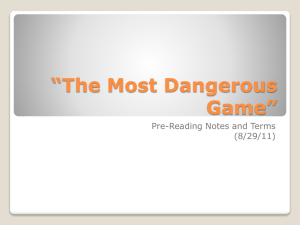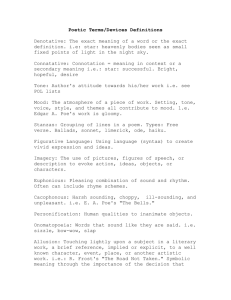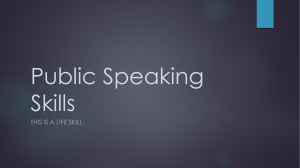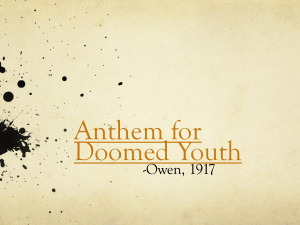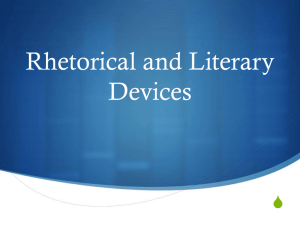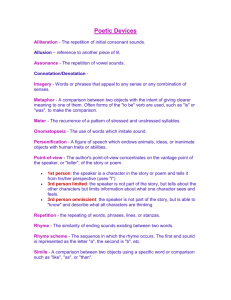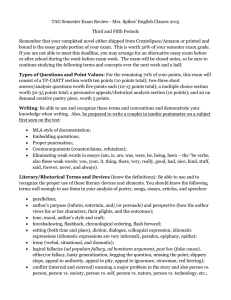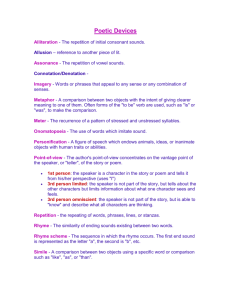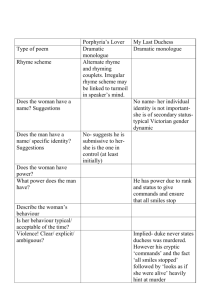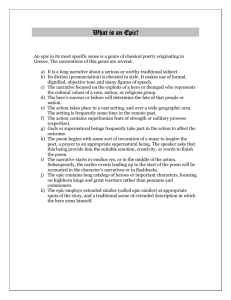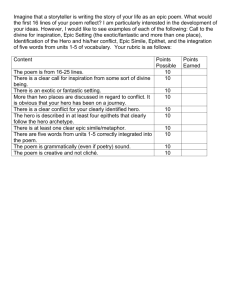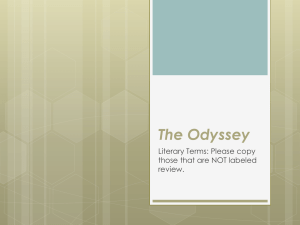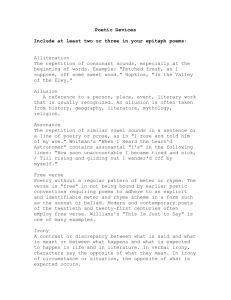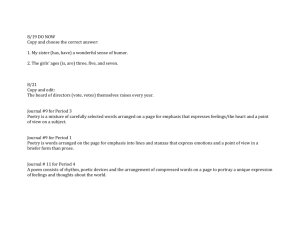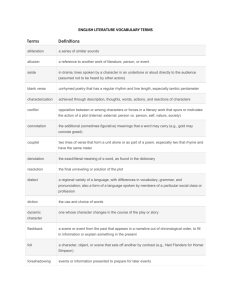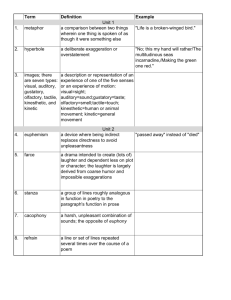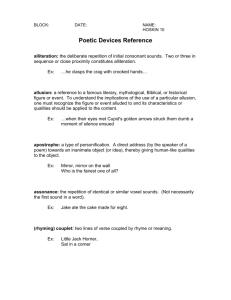Collection IV: Soldier Vocabulary Terms
advertisement
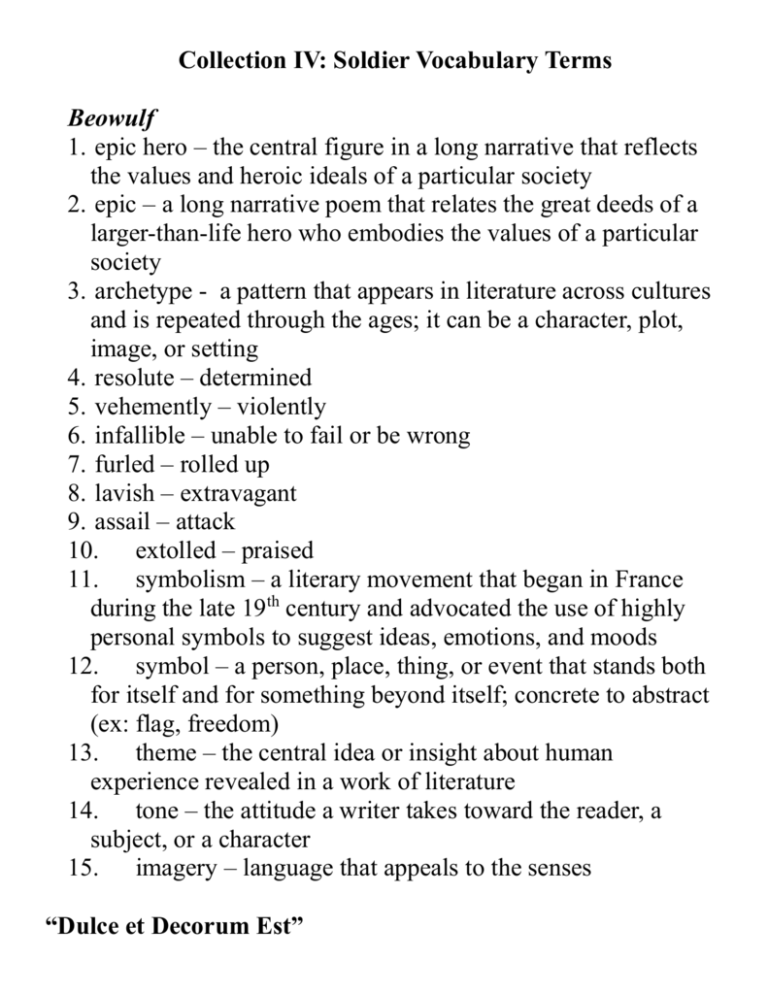
Collection IV: Soldier Vocabulary Terms Beowulf 1. epic hero – the central figure in a long narrative that reflects the values and heroic ideals of a particular society 2. epic – a long narrative poem that relates the great deeds of a larger-than-life hero who embodies the values of a particular society 3. archetype - a pattern that appears in literature across cultures and is repeated through the ages; it can be a character, plot, image, or setting 4. resolute – determined 5. vehemently – violently 6. infallible – unable to fail or be wrong 7. furled – rolled up 8. lavish – extravagant 9. assail – attack 10. extolled – praised 11. symbolism – a literary movement that began in France during the late 19th century and advocated the use of highly personal symbols to suggest ideas, emotions, and moods 12. symbol – a person, place, thing, or event that stands both for itself and for something beyond itself; concrete to abstract (ex: flag, freedom) 13. theme – the central idea or insight about human experience revealed in a work of literature 14. tone – the attitude a writer takes toward the reader, a subject, or a character 15. imagery – language that appeals to the senses “Dulce et Decorum Est” 16. figure of speech – a word or phrase that describes one thing in terms of another and is not meant to be understood on a literal level 17. simile – a figure of speech that makes a comparison between two seemingly unlike things by using a connective word such as like, than, or resembles 18. metaphor – a figure of speech that makes a comparison between two seemingly unlike things without using a connective word such as like, as, than, or resembles 19. oxymoron – a figure of speech that combines apparently contradictory or incongruous ideas 20. rhyme scheme – the pattern of rhymed lines in a poem 21. half rhyme – words that sound similar but do not rhyme exactly “The Hollow Men” 22. allusion – a reference to a statement, person, place, event, or thing that is known from literature, history, religion, mythology, politics, sports, science, or popular culture 23. inferences – guesses based on evidence 24. parody – the imitation of a work of literature, art, or music for amusement or instruction Blood, Sweat, and Tears 25. rhetorical devices – is a use of language that is intended to have an effect on its audience. Repetition, figurative language, and even rhetorical questions are all examples of rhetorical devices 26. rigor – extreme severity 27. provision – arrangement or preparation beforehand 28. lamentable – regrettable; unfortunate 29. buoyancy – lightness of spirit; cheerfulness Shooting an Elephant 30. verbal irony – occurs when a writer or speaker says one thing but really means something quite different-often the opposite of what he or she has said 31. situational irony – occurs when what actually happens is the opposite of what is expected or appropriate 32. supplant – replace; displace 33. labyrinth – maze; complex or confusing arrangement 34. squalid – foul or unclean; wretched 35. pretext – excuse I Believe in a British Empire 36. apathy – lack of interest 37. forfend – prevent
